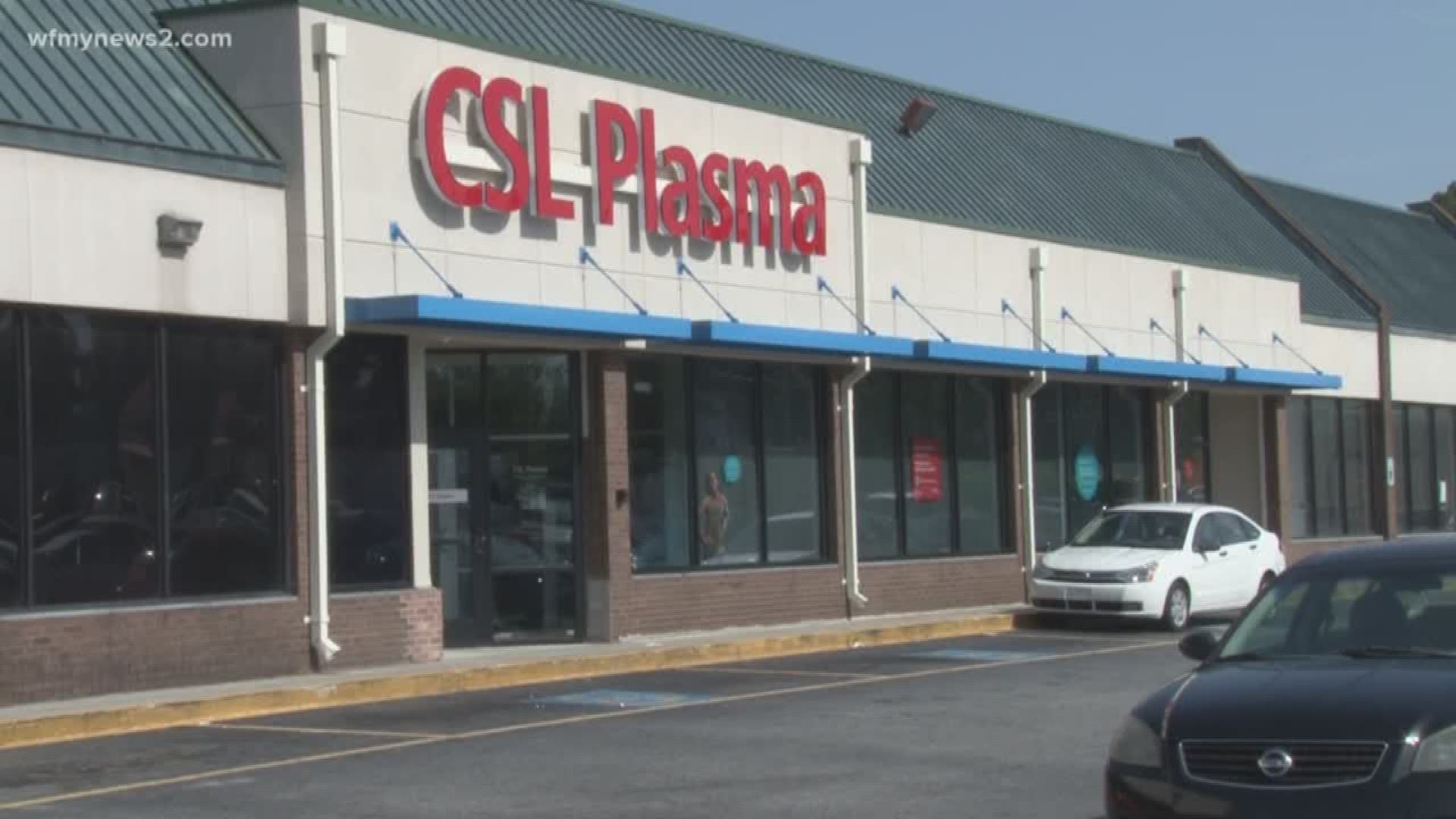GREENSBORO, N.C. -- What if you could make a few hundred bucks a month and all you had to do was roll up your sleeve? There is liquid gold coursing through your veins and it's called plasma.
Plasma helps regulate the volume of your blood and it can add some weight to your wallet.
2 Wants to Know found people who are selling their plasma for extra cash but is it safe?
It's common to see people walking in and out of CSL Plasma in Greensboro on a daily basis. Most with a bandage on their arm and money in their pocket.
"A friend told me extra money, at the time I wasn't working so you know, told me to come down here and try it out," said Qurin Mitchell.
Mitchell has been selling his plasma ever since. Each prick of the needle earns him anywhere from $20 to $50. It's possible to make $200 a month - even more.
"Just extra income you know, extra money to put in my pocket," said Mitchell.
Even with a full-time job, Mitchell continues to sell his plasma. It's Demetrius Levengood only source of income.
"If you hold on to it and let the bread stack up, it'll stack up to about 400 [a month]," explained Levengood.
Levengood sells his plama at BioLife Plasma Services twice a week, the maximum the FDA allows. The government agency sets strict guidelines including where purchased plasma can be used. Most plasma sold at places like CSL Plasma is used in research and development of treatments including blood clotting disorders like hemophilia.
Plasma contains antibodies, proteins and clotting factors. Through the highway of your body, it acts as a tractor trailer, transporting essential nutrients and hauling away cell waste.
Dr. James Wyatt is Medical Director of Trauma at Cone Health where plasma is used on a daily basis.
"For what I do primarily which is trauma care, any patient who comes in with obvious bleeding injuries or significant blood pressure problems from accidents that we assume is from an internal bleeding organ, we immediately start to give them plasma and blood," said Dr. James Wyatt.
In 2015, Cone Health used more than 27,000 gallons of plasma, all from Community Blood Centers of the Carolinas. Like CBCC, the American Red Cross never pays donors for their plasma or blood. The FDA says only donated plasma can be used in transfusions.
Whether selling or donating plasma, Dr. Wyatt says its safe for a healthy person.
"What they donate will be regenerated in their bodies and for only a brief period of time will they have some negative effects in terms of bleeding and other complications like that, it shouldn't affect them at all," said Dr. Wyatt.
At the Red Cross, donors like Tim Gribb go through a mini-physical, including blood pressure and hemoglobin tests. Then, blood is drained from his arm and into a machine that separates red cells from plasma and platelets. The red cells are pumped back into his body.
The entire process can take up to two hours. Mitchell says it's the same at CSL Plasma. The biggest difference, he's rolling up his sleeve for cash not the cause.
"I guess I just like extra money!"
The Red Cross and Carolina Blood Center of the Carolinas make people wait 28 days between plasma donations. At plasma centers, people can sell their plasma 2 times a week.
Dr. Wyatt says it is safe for a healthy person to donate but not everyone should. For example, people with low blood pressure are not a candidate for donations.
The National Institute of Health did a study on whether donating plasma long term was safe. That test determined more research is needed to answer that question.
In addition to transfusions, plasma is used to help burn victims, cancer patients and those with liver disease.

